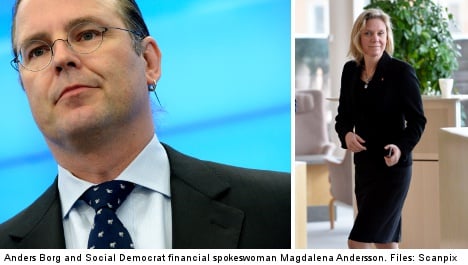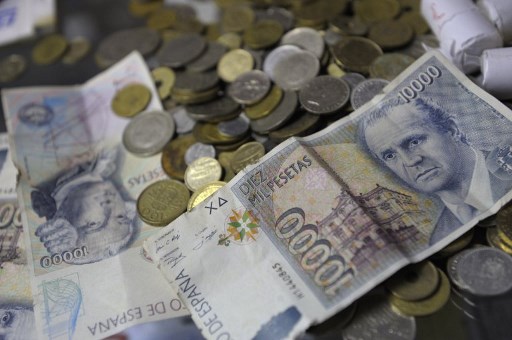“The criticism surprises me. Finance ministers in more or less all countries across the world from time to time have opinions on exchange rates,” Borg told reporters from Cape Town, where he is attending the World Economic Forum on Africa.
“That of course does not mean that I do not respect the Swedish central bank’s independence and autonomy,” Borg added.
The finance minister on Tuesday told Bloomberg News that he was worried about the strength of the Swedish krona. He said that the Riksbank may want to keep an eye on any further appreciation of the currency as it risked dampening Swedish export, a cornerstone of the country’s economy.
The comments immediately drew shadow finance minister Magdalena Andersson’s attention. The Social Democrat financial spokeswoman said Borg should stick to fiscal policy, and not put his oar in monetary policy.
“But if we have a structural shift of the exchange rate, we need to be able to discuss it,” Borg defended himself on Friday.
“I wonder if the industrial employees in my constituency Norrköping, who risk losing their jobs, would agree with her that there is no problem with the exchange rate.”
He added that it would be peculiar if he were to be the sole OECD finance minister who could not make statements about the exchange rate.
Borg also took the opportunity to underline that while he was keeping an eye on the Swedish krona, observers did not yet think it was dangerously overvalued.
“That’s why we don’t have an acute problem at the moment, but markets are not rational and capital flows in the modern world are tricky,” Borg said.
“Sweden relies heavily on steel, paper mass, and iron ore and I cannot see any advantage to encouraging an exaggerated strengthening of the currency.”
TT/The Local/at



 Please whitelist us to continue reading.
Please whitelist us to continue reading.
Member comments